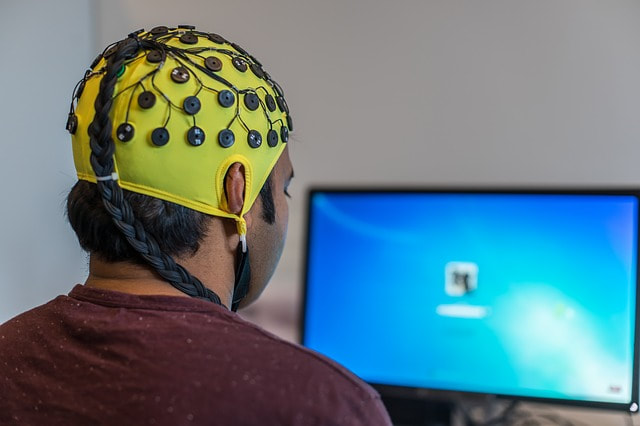|
A simple test could help determine the most effective treatment for individuals with depression.
The most common treatments for depression are medication and cognitive-behavioral “talk” therapy. Up until now, deciding which one was best suited for each particular patient was more Art than science. But this might change, thanks to a recent study that investigated reward positivity in depressed patients. Reward positivity is a change in brain activity in response to rewarding stimuli that can be observed very simply, using a well-established technology (electroencephalography, or EEG) capturing electrical signal emitted by the brain through electrodes placed all over the scalp. In their study, Burkhouse et alia demonstrated that depressed individuals tend to have a lower reward positivity--which increases with successful treatment. Actually, the correlation could offer the possibility to measure objectively the success of a therapeutic strategy. Moreover, the improvement was stronger for patients with the lowest baseline reward positivity and given antidepressants. This suggests that simple EEG tests could be used to determine if a given patient does require medication, or would benefit from CBT alone. Source: Burkhouse et alia (2018)
0 Comments
Your comment will be posted after it is approved.
Leave a Reply. |
|
Proudly powered by Weebly

